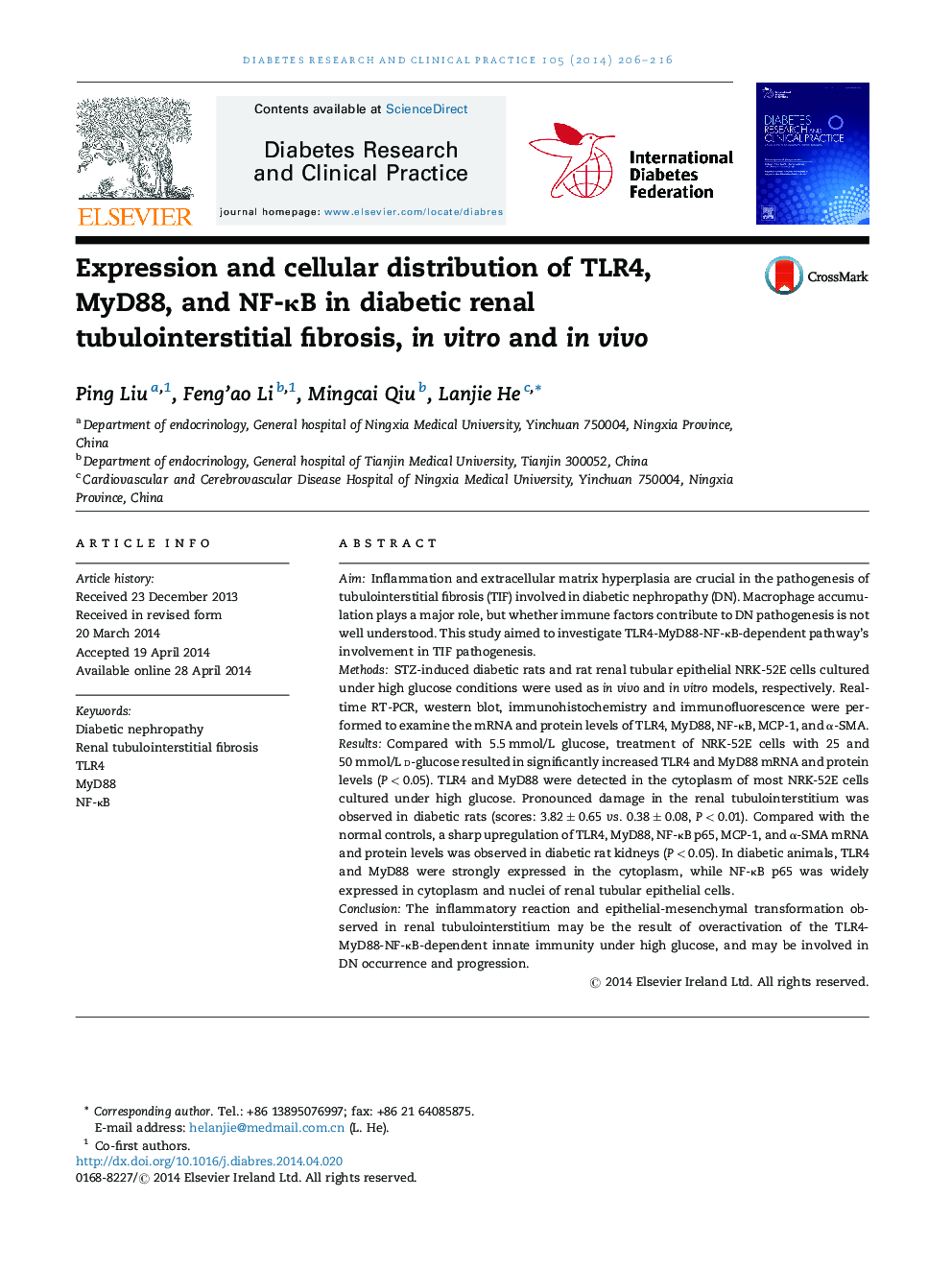| Article ID | Journal | Published Year | Pages | File Type |
|---|---|---|---|---|
| 2796505 | Diabetes Research and Clinical Practice | 2014 | 11 Pages |
AimInflammation and extracellular matrix hyperplasia are crucial in the pathogenesis of tubulointerstitial fibrosis (TIF) involved in diabetic nephropathy (DN). Macrophage accumulation plays a major role, but whether immune factors contribute to DN pathogenesis is not well understood. This study aimed to investigate TLR4-MyD88-NF-κB-dependent pathway's involvement in TIF pathogenesis.MethodsSTZ-induced diabetic rats and rat renal tubular epithelial NRK-52E cells cultured under high glucose conditions were used as in vivo and in vitro models, respectively. Real-time RT-PCR, western blot, immunohistochemistry and immunofluorescence were performed to examine the mRNA and protein levels of TLR4, MyD88, NF-κB, MCP-1, and α-SMA.ResultsCompared with 5.5 mmol/L glucose, treatment of NRK-52E cells with 25 and 50 mmol/L d-glucose resulted in significantly increased TLR4 and MyD88 mRNA and protein levels (P < 0.05). TLR4 and MyD88 were detected in the cytoplasm of most NRK-52E cells cultured under high glucose. Pronounced damage in the renal tubulointerstitium was observed in diabetic rats (scores: 3.82 ± 0.65 vs. 0.38 ± 0.08, P < 0.01). Compared with the normal controls, a sharp upregulation of TLR4, MyD88, NF-κB p65, MCP-1, and α-SMA mRNA and protein levels was observed in diabetic rat kidneys (P < 0.05). In diabetic animals, TLR4 and MyD88 were strongly expressed in the cytoplasm, while NF-κB p65 was widely expressed in cytoplasm and nuclei of renal tubular epithelial cells.ConclusionThe inflammatory reaction and epithelial-mesenchymal transformation observed in renal tubulointerstitium may be the result of overactivation of the TLR4-MyD88-NF-κB-dependent innate immunity under high glucose, and may be involved in DN occurrence and progression.
